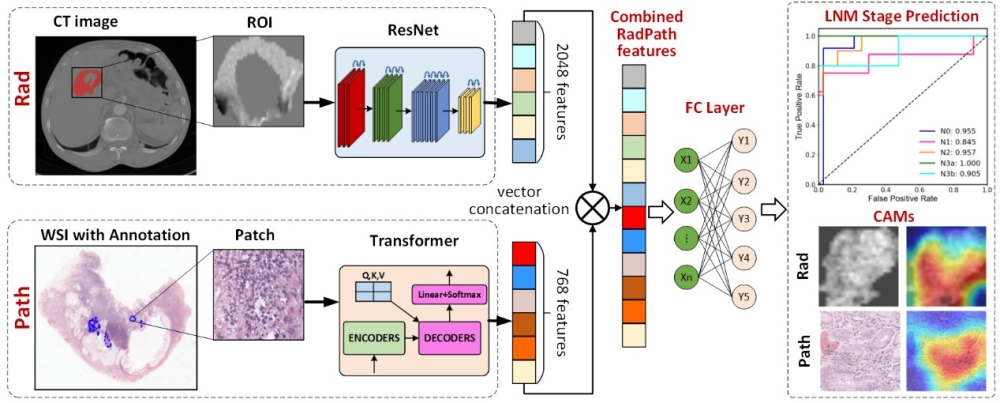AI-Enhanced Integrated Model Revolutionizes Lymph Node Staging in Gastric Cancer Research
Date:06-11-2023 | 【Print】 【close】
A research team led by Prof. LI Zhicheng from the Shenzhen Institute of Advanced Technology (SIAT) of the Chinese Academy of Sciences (CAS) has developed an artificial intelligence-based model that significantly improves the prediction of lymph node metastasis stages in patients with gastric cancer.
The study was published in Abdominal Radiology on Sep. 16.
Gastric cancer is one of the leading causes of cancer-related deaths worldwide. Accurate prediction of lymph node metastasis is crucial for determining the appropriate course of treatment and surgical intervention. However, traditional methods of prediction have been limited in accuracy, necessitating a more robust and precise approach.
The researchers conducted a retrospective study involving 252 patients treated between 2016 and 2019. By employing deep learning models and analyzing preoperative Computed tomography (CT) images and postoperative whole slide imaging (WSI) data, they developed an integrated model that amalgamates both radiologic and pathologic features to predict lymph node metastasis stages with unprecedented accuracy.
The integrated model achieved an overall accuracy of 84.0% and a kappa coefficient of 0.795 on the testing set. It demonstrated superior predictive performance compared to models using either radiologic or pathologic data alone. The model’s accuracy and precision in predicting lymph node metastasis stages can significantly aid in clinical decision-making and personalized treatment planning.
"As we know, this is the first model that combines radiological and histopathological images to predict lymph node staging in gastric cancer," said Prof. LI. "Our model has the potential to change the approach to gastric cancer treatment."

The pipeline of the deep learning-based radio-pathologic integrated model construction. (Image by SIAT)
Media Contact:
ZHANG Xiaomin
Email:xm.zhang@siat.ac.cn